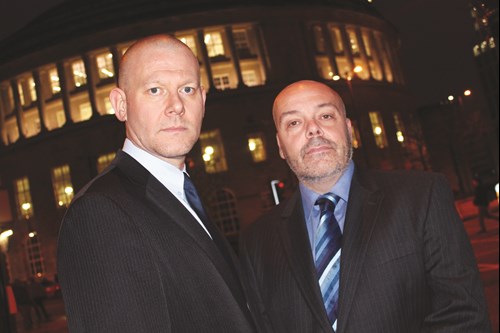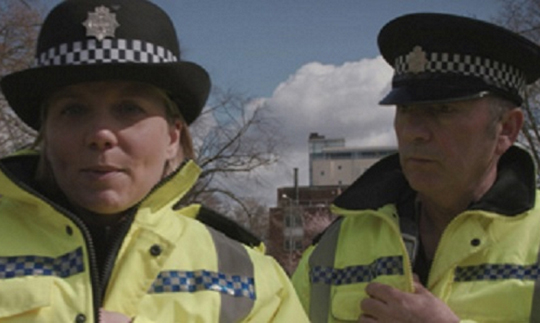Conduct update from leads Mike Peake and Lance Thomas
20 March 2018

In 2015, we saw the introduction of Regulation 10A, which meant that police officers required consent to retire or resign when under investigation for Gross Misconduct.
On 15 December 2017, Regulation 10A was removed. This is welcomed, as in our view it makes no sense to retain officers who wish to leave the police service.
However, in order to cater for its removal, the Government felt that something had to be put in place to ensure that serious wrongdoing was not ignored. Officers who may fit these criteria cannot simply walk away: safeguards have been put in place. The safeguards are the Police Advisory and Barred Lists.
Police Advisory List
The police advisory list is intended to act as a vetting tool for forces and other specified law enforcement bodies in order to flag up individuals who are under investigation for matters which could lead to dismissal, or designated volunteers who have had their status withdrawn. Whilst it does not act as an absolute bar on employment or appointment within policing, it does provide an additional level of accountability.
Officers who resign or retire during the course of an investigation that could have led to their dismissal if they had still being serving, or who leave and a relevant allegation comes to light, will be included on the police advisory list.
In these cases, the relevant authority of the individual will send a report to the College of Policing within five working days of the individual leaving the force or of the allegation coming to the attention of the relevant authority.
This will not apply where the individual was subject to an investigation which concluded that no disciplinary proceedings should be brought and subsequently leaves the force. Individuals will only be included on the advisory list where the allegation against them relates to conduct, efficiency or effectiveness and could have led to their dismissal if they had not retired or resigned.
Police Barred List
The police barred list is a statutory-approved list which acts as a bar on working within policing and certain law enforcement bodies. The intention of the list is to ensure that those who do not meet the high standards required of the service are not able to continue to work within policing.
Any individual who is dismissed from a position within policing becomes a barred person and is included on the barred list as a result of their dismissal. This will include findings made at misconduct hearings and special case hearings (fast track), as well as Stage 3 proceedings under Unsatisfactory Performance Procedures.
When an individual has been dismissed, the relevant authority will send the College of Policing a report within five working days of the dismissal or finding. The College of Policing will then include the individual on the barred list.
As a consequence of the status of the barred person, chief officers, local policing bodies, the IPCC and HMICFRS cannot employ or appoint a person who is barred. This includes continuing to employ a barred person. This means that in circumstances where an individual holds a dual role within policing (for example as a police staff member and a Special Constable), they cannot continue to be employed in either position if dismissed from one of them.
Police officers, Special Constables, former officers and former Special Constables dismissed under the Conduct Regulations will be placed on the published version of the barred list.
Information on the officer will be publicly available for five years after the date on which the details were first published. Once this period has elapsed, the details will not be available publicly but will be held permanently on the barred list and will be accessible to policing employers.
Independent Office for Police Conduct
On 8 January, the Independent Police Complaints Commission (IPCC) became the IOPC, so please note that any future requests that you may receive to provide any information will be under the heading of the IOPC.
Although there are structural changes in how the IOPC will operate in comparison to how the IPCC operated, we, as a Federation, should not see any changes in the way that we deal with the IOPC or how we represent you as members during IOPC investigations.
The IPCC began its work in 2004, overseeing the police complaints system. On 31 January 2017, the Policing and Crime Act 2017 was passed. The Act aims to simplify and streamline the police complaints system.
The IOPC will not have a Commission structure. At the head of the organisation will be a Director General, supported by Deputies, Regional Directors and a Director for Wales.
The Policing and Crime Act 2017 has aims to make the police complaints system simpler and more focused on achieving the right outcomes for complainants. The IOPC are being given new powers, which include:
- The power to initiate own investigations without relying on a force to record and refer
- Powers to determine appeals and recommend remedies
- A shortened process for deciding whether a case should go to a disciplinary hearing.
The IOPC is also taking on responsibility for the oversight of complaints for some other organisations outside of the police.
In April 2017, the IPCC already took on responsibility for the Gangmasters and Labour Abuse Authority (GLAA). In 2018, in certain circumstances, the IOPC will take responsibility for fire service personnel.
If you receive any contact from the IOPC requesting you to provide an account or any information as a witness or as an officer who is the subject of a complaint, then our advice remains the same: seek out your local Federation Representative for advice before responding.
We look forward to being able to help and support you in the year ahead.



















